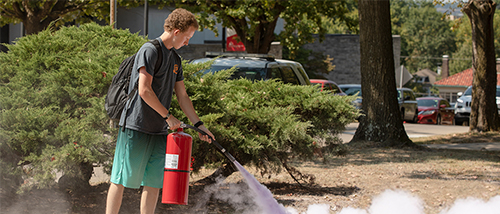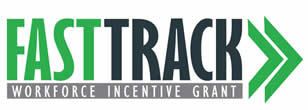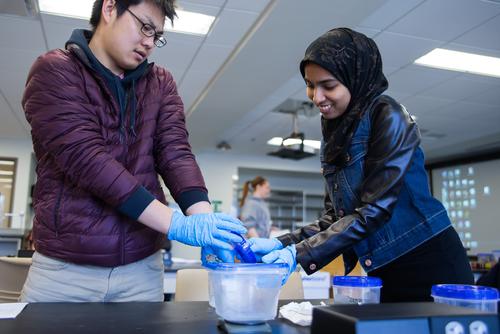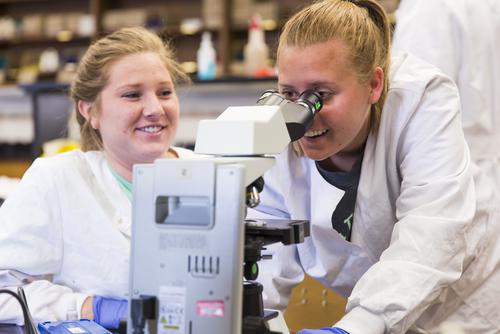Degree in Emergency Preparedness
Continue to main content
Emergency Preparedness (BS) Degree Map
Explore the courses you'll need to complete your degree.
Outcomes & Careers
-
$88k
Emergency Management Director
According to the Bureau of Labor Statistics, the mean annual salary for an emergency management director is $88,890.
-
$46k
Community Health Workers
According to the Bureau of Labor Statistics, the mean annual salary for a community health worker is $46,190.
-
$40k
Emergency Medical Technician
According to the Bureau of Labor Statistics, the mean annual salary for an emergency medical technician and paramedic is $40,120.
The emergency preparedness curriculum prepares you for the growing emergency management field. You’ll complete a minimum of 120 credit hours to complete this degree, including the general education requirements and at least 39 senior division hours.
Required Courses
- BI582 Internship in Biology I (1)
- CH184 General Chemistry I Lab (1)
- CH185 General Chemistry I (3)
- CH234 Organic and Biological Chemistry (3)
- EA507 School and Campus Safety (3)
- EV447 Fundamentals of Disaster/Emergency Management and Planning (3)
- EV448 Disaster/Emergency Planning and Response (3)
- EV449 Vulnerability, Risk Reduction/Critical Incident Management (3)
- EV454 Risk Assessment Applications (3)
- EV456 Fundamentals of Risk Communication in Emergency Management (3)
- EV551 Hazardous Materials Assessment (3)
- GO445 Advanced Geographic Information Science (3)
- GRT425 GIS Planning for Emergency Management (3)
- HL320 Community Health (3)
- MA116 Precalculus A (3)
- MG301 Principles of Management (3)
- PS310 Government and Politics in the American States (3)
- PS415 Government Budgeting Process (3)
- PS418 Public Policy Analysis (3)
- PS425 Administrative Law and Procedure (3)
- SC350 Organizational Communication (3)
- SC355 Relational Communication Strategies (3)
- SW242 Statistics for Social Scientists (3)
Choose 3 hours:
- PY301 Cross-Cultural Psychology (3)
- SC230 Communicating Professioanlly (3)
- SO375 Collective Behavior (3)
Additional Requirements:
- BS105 Environmental Biology (3)
- GO150 Earth Science: Environmental Hazards (3)
- HL120 Health Perspectives (3)
- PS103 U.S. Political Systems (3)
- SC105 Fundamentals of Oral Communication (3)
- IU309 Writing for Science and Technology (3)
- EV387 Environmental Law (3)
- PL429 Environmental Ethics (3)
Choose 3 hours:
- SO101 Introduction to Sociology (3)
- SO321 Urban Sociology (3)
Some requirements may be fulfilled by coursework in major program.
- Social and Behavioral Sciences – 6 hours
- Constitution Requirement – 3 hours
- Written Communication – 6 hours
- Oral Communication – 3 hours
- Natural Sciences – 7 hours (from two disciplines, one to include a lab)
- Mathematics – 3 hours
- Humanities & Fine Arts – 9 hours (from at least two disciplines)
- Additional requirements – 5 hours (to include UI100 for native students)
- Civics examination
Freshman Year
Fall Semester (13 Hours)
- UI100 (1)
- EN100 (3)
- BS105 (3)
- MA116 (3)
- PS103 (3)
Spring Semester (16 Hours)
- CH184/CH185 (4)
- HL120 (3)
- SC105 (3)
- General Education (3)
- General Education (3)
Milestone: maintain 2.0 cumulative GPA
Sophomore Year
Fall Semester (15 Hours)
- CH234/034 (3)
- HL320 (3)
- SO101 or SO321 (3)
- EV387 (3)
- General Education (3)
Spring Semester (15 Hours)
- IU309 (3)
- MG301 (3)
- PS310 (3)
- PY301/SC230/SO375 (3)
- SW242 (3)
Milestone: maintain 2.0 cumulative GPA
(summer courses are encouraged to avoid semesters exceeding 15 hours.)
Junior Year
Fall Semester (15 Hours)
- EV454 (3)
- PS415 (3)
- SC355 (3)
- PL429 (3)
- General Education (3)
Spring Semester (13 Hours)
- BI582 (1)
- GT425 (3)
- GO445 (3)
- PS418 (3)
- General Education (3)
Milestone: maintain 2.0 cumulative GPA
Summer Term (3 Hours)
- EV551 (3)
Senior Year
Fall Semester (15 Hours)
- EV447 (3)
- EV449 (3)
- EV456 (3)
- PS425 (3)
- General Education (3)
Spring Semester (15 Hours)
- EA507 (3)
- EV448 (3)
- GO150/050
- SC350 (3)
- Elective (3)
Milestone: maintain 2.0 cumulative GPA
A “Milestone” signifies a significant stage for a student in the completion of a degree.
What will it cost?
Get Funding for Your Education
Missouri’s opened the door to a more educated workforce. We want to help you walk through it. If you’re an adult learner and a Missouri resident returning to college, learn about the Fast Track Workforce Incentive Grant. It’s a statewide financial aid program that can be used to pursue a certificate, degree or industry-recognized credential in a high need area in Missouri. This major is eligible for the Fast Track grant.
Become a Redhawk.
Do more than dream about the future. Take the first steps to make it all happen.
Hands-on Learning
You’ll gain hands-on real-world experience through required internships or research opportunities with local, state, and federal government and in the private industrial sector.
Happening in Biology
The Will to Do
Cape Girardeau, Missouri 63701








